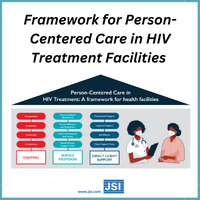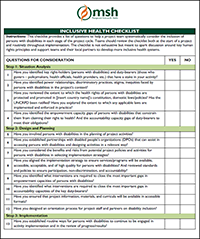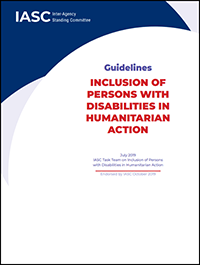
Person-centered care approaches can help people living with HIV stay in treatment and improve their overall quality of life. However, a consistent approach to utilizing…
Read More...Showing results for: Teamwork

Person-centered care approaches can help people living with HIV stay in treatment and improve their overall quality of life. However, a consistent approach to utilizing…
Read More...The development and humanitarian sector comprises many organizations, groups and communities working towards shared sustainable development goals. Connecting with others working on the same issues…
Read More...This MOMENTUM Knowledge Accelerator report provides an overview of current organizational capacity literature and proposes a new enhanced framework that reflects on the evolution of…
Read More...These tools and templates were developed by GMS staff and consultants in working with the Country Coordinating Mechanisms (CCMs) and their secretariats around the world.…
Read More...In the course of almost 10 years of operation, GMS progressively refined its approach to organizing and implementing short-term technical supported, and has consequently identified…
Read More...
The Inclusive Health Checklist provides a list of questions to help a project team systematically consider the inclusion of persons with disability in each stage…
Read More...Mobility International USA hosts the Women’s Institute on Leadership and Disability (WILD), inviting international delegates representing over a dozen countries to the United States. The…
Read More...
Persons with disabilities are estimated to represent 15 percent of the world’s population. In humanitarian contexts, they may form a much higher percentage. They are…
Read More...The Practice of PDIA: Building Capability by Delivering Results podcast is a 12 part series that will walk you through the Problem Driven Iterative Adaptation…
Read More...The Building State Capability (BSC) program at the Center for International Development (CID) uses Problem Driven Iterative Adaptation (PDIA) to help organizations develop the capability…
Read More...